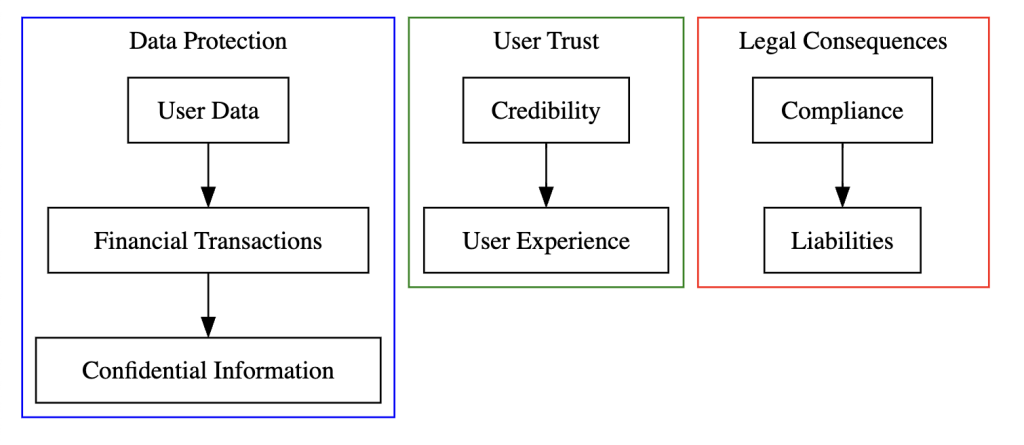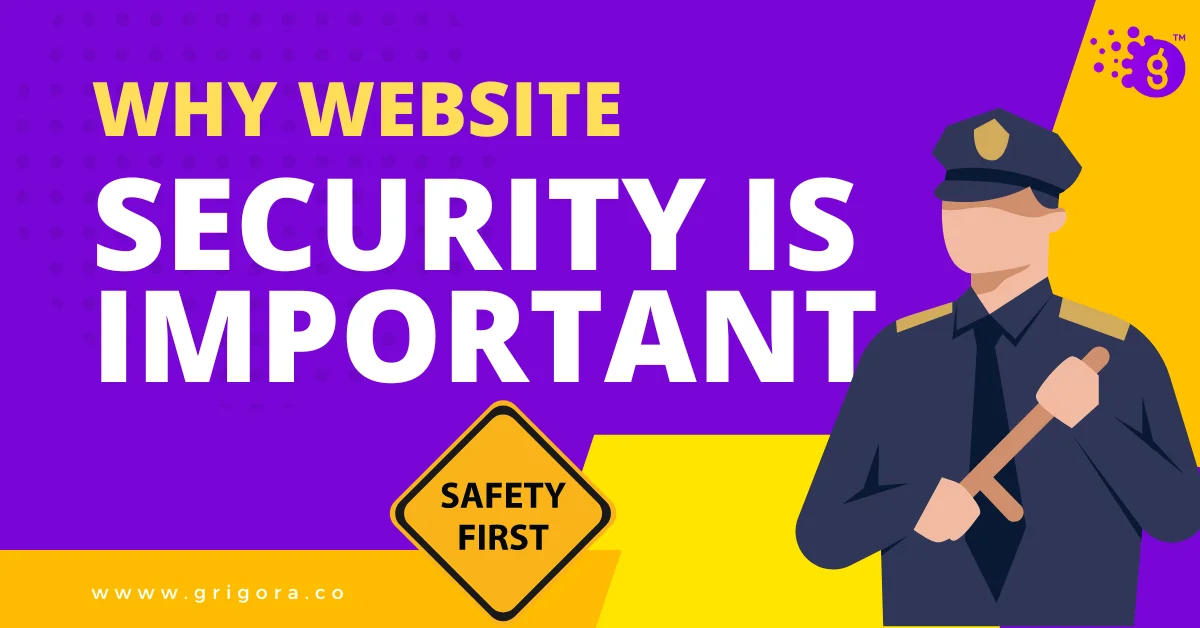Introduction
Why Website Security Matters
Hey there! If you're reading this, you're probably aware that we live in a digital world. But have you ever stopped to think about how secure that world is? Why is website security so crucial? Well, it's not just about keeping hackers away; it's about protecting your reputation, building trust with your customers, and making sure your online services run smoothly.
The Importance of Website Security
Let's get real. In today's world, cyber threats are everywhere. Data breaches, identity theft, and various forms of cyberattacks are becoming the norm rather than the exception. So, if you're running a website—whether it's a personal blog, an e-commerce store, or a government portal—you've got to make sure it's secure.
Grigora's Role in Website Security
Now, you might be wondering how to go about securing your website. That's where Grigora comes in. We offer top-notch security features that protect against a wide range of cyber threats. From SSL certificates to firewalls, we've got you covered. With Grigora, you can focus on what you do best, knowing that your website is in safe hands.
The Imperative of Website Security

Points to Consider:
Data Protection: Safeguarding user data, financial transactions, and confidential information is crucial for any website.
User Trust: A secure website enhances credibility and user experience, thereby building trust among visitors.
Legal Consequences: Ensuring compliance with data protection laws helps in avoiding legal liabilities.
The Rising Threat Landscape
Cyber Attacks and Their Impact
Let's dive into the nitty-gritty. Cyber attacks are not just something you read about in the news; they can happen to anyone, including you. From ransomware that locks you out of your own files to phishing scams that trick you into revealing sensitive information, the range of cyber attacks is vast. And the impact? Well, it can be devastating, both financially and emotionally. Imagine losing years of work or having your personal data sold on the dark web. Scary, right?
Data Breaches
Now, let's talk about data breaches. These are incidents where unauthorized individuals gain access to confidential data. The fallout can be massive. We're talking about financial losses that can run into millions and a tarnished reputation that can take years to rebuild. Your customers trust you with their data; a breach can shatter that trust in an instant.
Legal Implications
But wait, there's more. Did you know that there are laws and regulations that require you to protect customer data? Failure to comply can lead to hefty fines and legal action. In some cases, you could even face criminal charges. So, website security isn't just about protecting your data; it's also about staying on the right side of the law.
Importance of Website Security
Protecting User Data
Let's get real for a moment. Your users are the lifeblood of your website. They trust you with their data, from email addresses to payment information. If that trust is broken, it's not just a PR nightmare; you could also find yourself in legal hot water. Safeguarding user data isn't just good practice; it's a legal requirement. So, if you're not taking website security seriously, now's the time to start.
SEO and Website Ranking
You might be wondering, "What does website security have to do with SEO?" Well, quite a bit, actually. Search engines like Google prioritize secure websites. If your website is compromised, it can be blacklisted or suffer a severe drop in rankings, which is a big no-no for your online visibility. A secure website is a more searchable website. Plus, users are more likely to trust and engage with sites that are secure, improving their overall experience.
Business Continuity
Imagine this: Your website goes down due to a cyber attack. Not only do you lose revenue, but you also have to spend money to fix the issues. And let's not forget the time and resources you'll need to invest in damage control. Website security is crucial for ensuring that your business operations run smoothly and without interruption.
Implementing Website Security
SSL Certificates
Let's start with the basics. You've probably noticed that some website URLs start with "http" while others start with "https." That extra "s" is crucial. It stands for "secure," and it's made possible by SSL certificates. SSL certificates encrypt the data that moves between the user and the server, making it harder for hackers to intercept. If you're running an online store or any site that collects user information, an SSL certificate is a must-have.
Firewalls
Think of a firewall as your website's personal bodyguard. It stands between your website and the rest of the internet, checking everyone (and everything) that tries to enter. Suspicious activity? Denied. Potential threat? Not on its watch. Firewalls are your first line of defense against unauthorized access and various types of cyber attacks. They filter out malicious traffic and keep your website safe and sound.
Regular Updates and Patches
Software isn't perfect. New security vulnerabilities are discovered all the time. That's why it's crucial to keep all your systems and software up to date. Regular updates and patches fix known security issues and help protect against potential threats. It might seem like a hassle, but it's a small price to pay for peace of mind.
Common Security Measures
Two-Factor Authentication

Do you know how some top-secret facilities in movies require both a key card and a fingerprint to enter? That's basically two-factor authentication (2FA) in a nutshell. It's an extra layer of security that goes beyond just asking for a username and password. With 2FA, you'll also need to provide something that only you have access to, like a mobile device that receives a unique code. This makes it much harder for unauthorized users to gain access to your website.
Secure Coding Practices
Coding is the backbone of every website, but not all code is created equal. Secure coding practices are essential for preventing vulnerabilities that hackers can exploit. This includes everything from input validation to avoid SQL injection attacks, to using secure APIs. It's like building a house; you want a strong foundation to withstand storms, or in this case, cyber attacks.
Data Encryption
Imagine sending a postcard through the mail. Anyone who handles it could read your message. Now, imagine if that message were written in a code that only you and the recipient could understand. That's what data encryption does for your website. It scrambles the data so that it's unreadable to anyone who doesn't have the key to decode it. This is crucial for protecting sensitive information like customer data and payment details.
Case Studies: The Importance of Robust Website Security Measures
Case Study 1: Consequences of Poor Security in a Company
Source: Small Business Chron
Summary: This article discusses the disastrous results poor security can have on a business, its customers, and suppliers. It covers a range of issues from physical security like dark stairwells and poorly lit storage rooms to digital security concerns like electronic theft and corporate espionage. Poor security measures can lead to significant financial losses, legal liabilities, and damage to reputation.
Case Study 2: Website Defacement Attacks
Source: MSN
Summary: Website defacement attacks can disrupt a business for several hours or even days. The article emphasizes the need to deploy resources to fix the issue and detect vulnerabilities that led to the attack. The severity of the defacement can vary, but the impact is often significant.
FAQs
What are the basic website security measures every website should have?
Every website should have a foundational level of security that includes SSL certificates for encrypted data transmission, firewalls to protect against unauthorized access, and regular software updates to patch vulnerabilities. Two-factor authentication and secure coding practices are also highly recommended.
How often should I update my website's security features?
The frequency of security updates depends on various factors like the type of website, the volume of user data, and the nature of the business. However, it's advisable to regularly monitor for security patches and updates, ideally on a monthly basis. Always apply critical security updates immediately.
Is SSL enough to secure my website?
While SSL certificates are essential for encrypting data transmission between the user and the server, they are not sufficient on their own to secure a website fully. Additional measures like firewalls, two-factor authentication, and regular software updates are also necessary for comprehensive website security.
Conclusion
In today's digital age, website security is not a luxury or an afterthought; it's a necessity. From protecting sensitive user data to maintaining your SEO rankings and ensuring business continuity, the importance of robust website security measures cannot be overstated.
Grigora's Role: It's worth mentioning that platforms like Grigora offer robust security features, making it easier for businesses and individuals to maintain a secure online presence.
The threat landscape is continuously evolving, and so should your security measures. It's an ongoing effort that requires vigilance, regular updates, and a proactive approach to identifying and mitigating potential risks. By prioritizing website security, you're not just protecting your business; you're also building trust with your users, which is invaluable in the long run.



